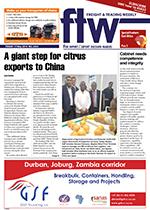WCO – Latest Classification Decisions
The World Customs Organisation (WCO) has released the Classification Decisions; Amendments to the Compendium of Classification Opinions; and the Harmonised System (HS) Explanatory Notes following the HS Committee’s 62nd session. There were 36 classification opinions, which related to: dryblanched ground-nuts, cough tablets, hydraulic cement, motor petrol with octane number 92, heavy distillates, liquid fuels, fuel oil 100, lowviscosity marine vessel fuel, etoposide and teniposide, ciclosporin, trimethoprim and sulfamethoxazole tablets, resin solution, clear transparent liquid, dental zirconia ceramic, polyethylene S21, fibreboard of wood, hand-held printing pen, evaporative air cooler, engine templer (pulley), antenna for base station, microwave antenna, metal cabinet, superluminescent diode module, automotive window with moulding strip, flanged tapered roller bearing for inner ring rotating type, hub unit bearing for outer ring rotating type, finished outer ring for a flanged tapered roller bearing, forged, unfinished, outer ring for a flanged tapered roller bearing, main board for vehicle instrument panel – strip lights, tape lights – flexible indoor LED tape light - Cool White, and LED Panel lights.
‘The Future of the HS’ – Global Conference
On May 2-3 the WCO hosted its global conference on the future of the HS, attracting over 300 participants from customs administrations, international organisations, industry associations, trade professionals, import/export companies and academia. The objective of the conference was to brainstorm a possible strategic review of the HS, to look at how the HS is working across its user base, to see what may need to be done to improve its functioning, and to make recommendations to the WCO policy commission on whether to proceed with a strategic review. The conference made the following recommendations: implement a project to further examine potential areas of change for the HS which would continue the consultation process; gather further information on the current issues in relation to the use of the HS; conduct a feasibility study examining the desirability and impacts, including initial cost and benefit analysis, of the proposals resulting from the conference and the
subsequent consultations; and to make subsequent recommendations to the policy commission on the progressing of viable changes, including on the most appropriate bodies and mechanism to advance these changes. In making these recommendations, the Conference stressed the need for a transparent and inclusive approach, and for it to be done in an efficient and timely manner. The WCO policy commission is scheduled to meet in June, at which time it will consider the results of the conference and decide upon the next steps.

